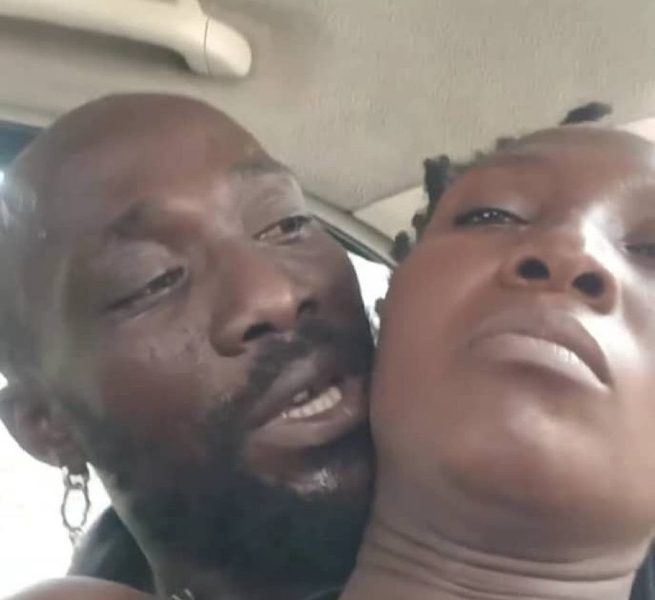Abimbola Adelakun
The Lagos State Government has initiated a probe into the tragic maternal death of Mrs Kemi Folajimi, the pregnant woman who supposedly died because a private healthcare facility denied her crucial emergency care when her husband could not deposit N500,000 for her treatment. We have been Nigerians for long enough to know how the probe will go: embarrassed government officials will make the right noises, but very little structural change will be achieved by the end of the day. Mrs Folajimi did not die because of money; she died because Lagos is a disorganised city with a lack of infrastructure for emergency services.
Many commenters, including some respected television anchors, think the issue was solely about money. They unrealistically drew up how much money a man should have saved before having children. In a state where 93 per cent of workers reportedly earn less than N200,000, they think a man should have N500,000 tucked aside before he can be a father. Let me break this to you: in a chaotic society where facilities for primary healthcare and emergency services are absent, anyone can die like a dog even while their pockets bulge with money. People have so quickly forgotten that just weeks ago, a tech entrepreneur, Adetunji Opayele, also died in Lagos following a road accident where the bystanders were the ones transporting him from one hospital to the other in a public vehicle.
What killed Mrs Folajimi is a systemic issue that would not have been resolved by individual responsibility. Read the husband’s interview, and you will understand that the poverty that killed her was that of policy—a direct consequence of what is called “multi-dimensional” poverty. For their community to rely on midwives, it must mean that grassroots healthcare facilities are lacking. Now, before some clown pops out to remind us that even Western societies still use the services of midwives, please know they are not only highly regulated but also get to summon prompt emergency services when things go wrong. In Mrs Folajimi’s case, there was no such provision. From the private hospital in Lakowe that reportedly rejected her to the public hospital in Epe, where they referred her, was a journey of 40 minutes. That was a lot of time for a woman who needed emergency care.
According to Mr Folajimi, when they encountered a traffic jam on the way, he had to appeal to the traffic officers to negotiate a path for their vehicle, given the woman’s dire situation. Look at how much crucial time was lost doing all that! Money or no money, anyone could have died under such circumstances. In an organised society, she would have been transferred to another hospital in a siren-blowing ambulance while being attended to by medical professionals. Yet, Nigeria is a place where the only people who get to use sirens to shove us off the road are narcissistic public officials who serve no useful purpose to society. The major reason Oyinbo invented those devices has long been subverted by these highly placed miscreants running empty errands.
Yes, Lagos has initiated a probe, but you can bet the answer they will return would be some tame proclamations on what hospitals should do during emergencies. They are unlikely to indict their own failure to organise society to manage emergencies.
Beyond the shortcomings of Lagos on this matter is also the reality of multidimensional poverty. Over the weekend, President Bola Tinubu’s Special Adviser on Economic Affairs, Tope Fasua, got on television to downplay the reality of its impact. He said something to the effect that we (our society, I presume) do not know the meaning of the term, and it is one big jargon to bedazzle us and sensationalise poverty. He said, “They think multi-dimensional poverty is worse than food poverty. What multi-dimensional means is that maybe the school your children attend is too far from you or the hospital, and they categorise you as multi-dimensional.” But what exactly was his point? Is that multi-dimensional poverty’s denial of ready access to life-enhancing facilities any more or less desirable than food poverty? Either way, the point made no sense. Mrs Folajimi’s case is an illustrative instance of the distance (literal and otherwise) between death and life, and she is by no means unique. Life in Nigeria gets abridged daily due to multidimensional poverty.
Fasua made several points in that interview that confirm the fears that I have held about the moral vision of the Tinubu administration. These people have no agenda of prosperity and plenitude, and their deficiency is why they routinely valorise poverty. I used to think hyping poverty was the defining ethos of the Muhammadu Buhari administration given how the man not only likes to pretend that he is poor, but also treats poverty—in others, not for himself or immediate family—as some sort of virtue. However, between Tinubu, who narrated a story of how his “friend” became an ẹdun arinlẹ̀ and associates who think a Nigerian can survive on N1500 daily, the APC talakawa mentality is self-evident.
According to Fasua, while $10 won’t buy anyone lunch anywhere in the US, Nigerians can eat with as little as $1. First, he is wrong about the USA. In their poorer states, you can even have breakfast and lunch for $10. Here is the fun fact which one would not have expected an economist like Fasua to have missed: what it takes to earn lunch in the US vs. Nigeria. In the US, where the minimum wage per hour ranges from $7.50 to $15, it takes one hour (or less) of work to buy lunch. Whereas in Nigeria, where the daily minimum wage comes to N2560, you will need almost half a day of work, going by Fasua’s N1500. You dare not eat twice a day on a minimum wage.
At N1,500 per meal per day, you are also not supposed to afford any indulgence, no matter how small. Let us momentarily presume that this Nigerian, being asked to survive in this way, does not have any family, immediate or extended, who depend on them for money. There is no consideration for how our hypothetical Nigerian should be able to afford other necessities like shelter, clothing, hospital bills, and even have some savings! The present government’s idea of how a Nigerian should live is to work, eat basic meals, and die.
If they properly map the geography of poverty to understand its multi-dimensional impact, they would speak to the issues beyond food. Poverty is more than food; it cannot be solved if the average person on a minimum wage eats within their constricted means. Poverty is also about the social safety net and access to life-enhancing facilities. Rather than bending logic to mask the problem of “multi-dimensional” poverty, treating it as just a bunch of words strung together by economists who want to sensationalise administrative failings, they should open their eyes to its real-life impact. The poverty that killed Mrs. is not all about money.
There is also a great deal of incoherence in this administration’s understanding of what constitutes poverty. For instance, when they inaugurated the student loan scheme for indigent Nigerians, they pegged the income level of an eligible family at N500,000 annually (or N42,000 monthly). Yet the same government’s idea of a poor individual is a person who can eat N1,500 (N45,000 monthly) worth of food daily. Meanwhile, at N1,500 per meal daily, should a family of four not be earning a minimum of N180,000 monthly?
Even worse, this same society where the people who have the ears of the government tell us that a mere N1,500 is enough for daily survival also expects a man to have saved N500,000 to deposit for his pregnant wife’s treatment in the hospital. How many Nigerians even earn that much in a year? How many of those who do have that much saved up? The reality is far more twisted, and it is almost callous how the people blaming the Folajimis too easily overlooked the structural issues that took her life.

































































